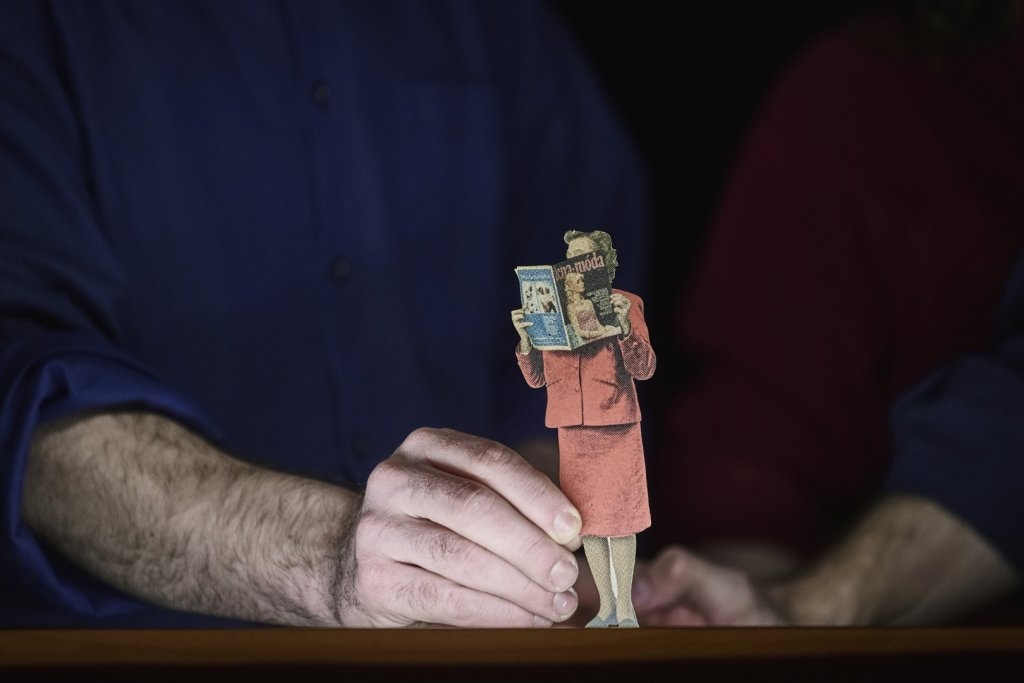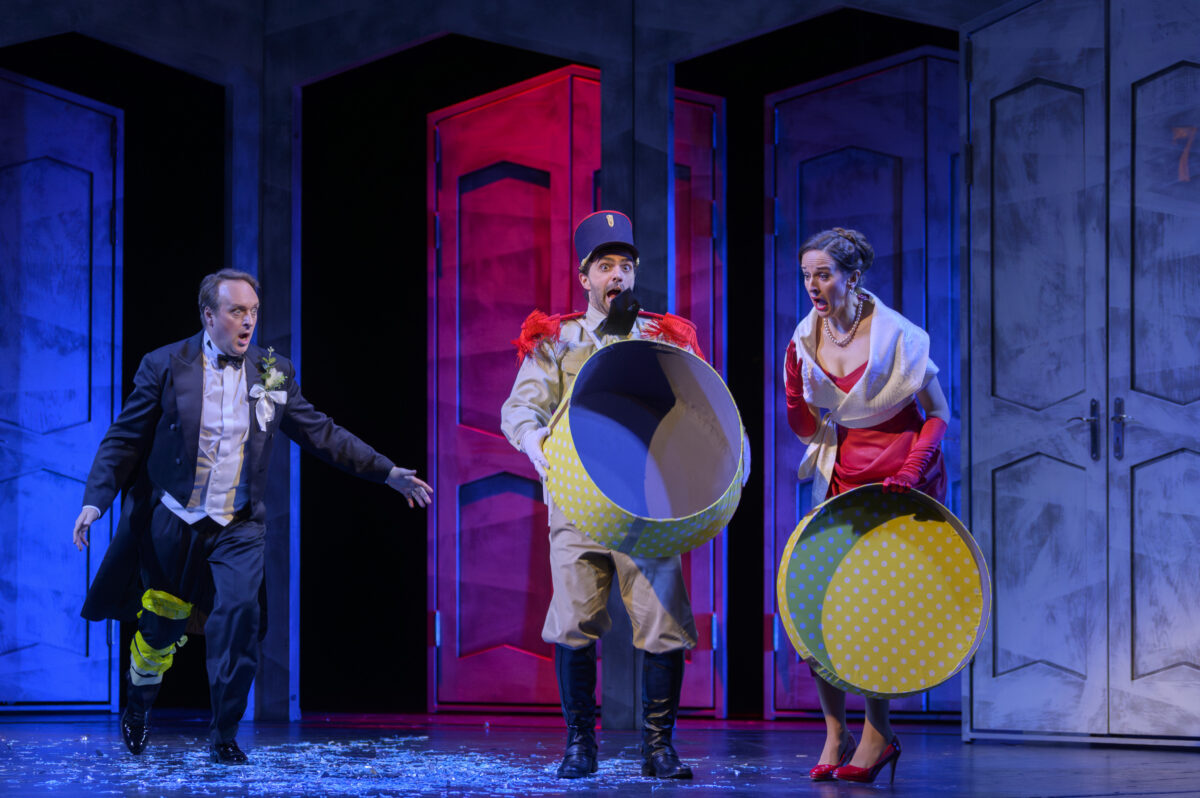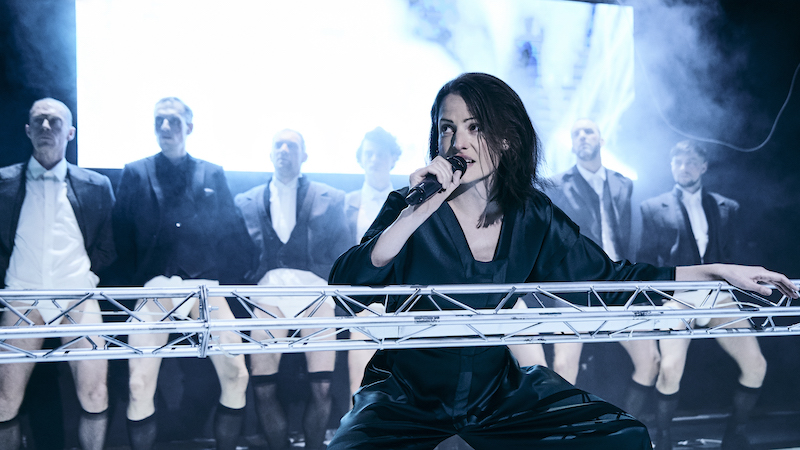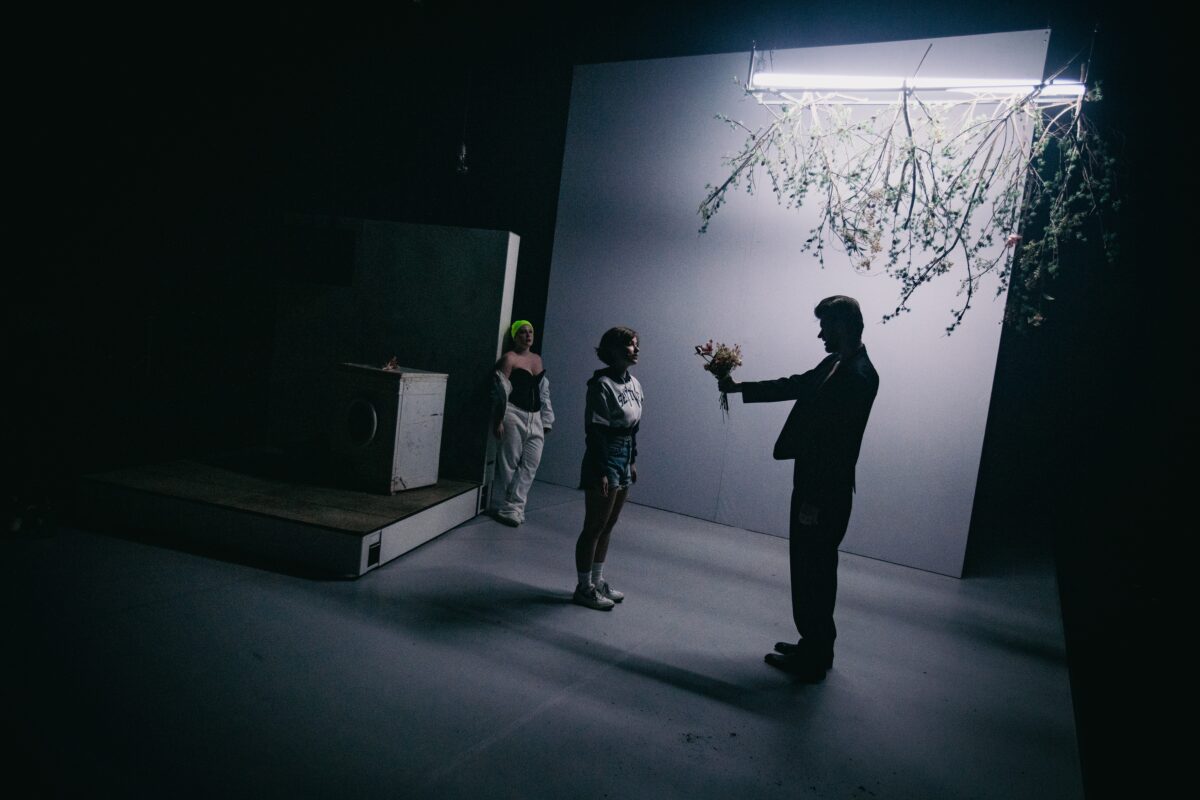INTERNATIONAL COLLOGUIUM – 1990S REVISITED: CENTRAL EUROPEAN THEATRE AND THE POLITICAL

14. NOVEMBER 2024 14:00 – 17:00 at DAMU.
After the fall of communism, Eastern and Central European countries experienced sweeping political and social changes, yet the influence such transformation exerted over theatre has not been systematically examined. With the disappearance of the authoritative regime, the original concept of the theatre’s political function, which oscillated between legitimating and covertly subverting the status quo, was exhausted. At the beginning of the new decade, theatre was searching for a new position in society while the economic and institutional framework of theatre in individual countries was restructuring. Theatre historians have tended to label the 1990s as the time of “theatre crisis” or to consider the 1990s theatre apolitical, but the period is yet to be surveyed to a greater depth.
How can we comprehend and articulate the relationship between theatre and the gradually consolidating, reshaped public spheres during the 1990s? How was theatre’s attitude to the political redefined? How did the theatre aesthetic respond (or fail to respond) to the changing political and social contexts in different European countries? And what role did the so-called postmodernism play in such processes?
The colloquium will focus on the situation in Central Europe and will contrast and compare developments in Polish, Slovak, and Czech theatre.
The event takes place as part of the DAMU activities to mark the 35th anniversary of the Velvet Revolution, which are held under the auspices of the Thanks that we can. The celebrations on Národní třída in Prague on 17 November are preceded by the Freedom Week, which presents cultural and educational events related to the themes of freedom, democracy and current social challenges, and will involve more than 40 educational and cultural institutions across Prague.
ABSTRACTS AND BIOS
1990’s: The Birth of a New Political Theatre in Poland
Anna R. Burzyńska
Although today it is unjustly forgotten (most scholars focus either on the politically turbulent 1980s or on the unprecedented wave of new talented directors debuting in the 2000s), the decade of 1990 in Polish theatre was extremely interesting and groundbreaking.
The most important Polish artists of the older generation reacted to the political breakthrough: back in June 1989, Andrzej Wajda directed his famous Hamlet. The early 1990s brought four crucial productions by the other four theatrical masters: Tadeusz Kantor’s Today Is My Birthday, Jerzy Jarocki’s The Marriage, Krystian Lupa’s Kalkwerk and Jerzy Grzegorzewski’s City Counting Dog Noses. All of these performances had the character of reckoning with the near and distant past, thematised the issue of memory (especially traumatic memory), dealt with the tension between the private and the public, and asked what shapes the identity of a contemporary European.
But the 1990s also saw the appearance of a new generation of Polish artists on the stage. Theatre historians believe that the real beginning of a new era was January 18th, 1997, when two Warsaw premieres took place: Grzegorz Jarzyna’s Tropical Craze and Krzysztof Warlikowski’s Electra. Not much later, the two directors started to co-create the Variety Theatre (TR Warszawa), which for many years was regarded as the most daring and important Polish stage.
These seven premieres (which I will discuss in my paper) laid the foundation for political theatre in Poland today, and both aesthetic and institutional changes introduced in Polish theatre in the 1990s are still relevant.
Anna R. Burzyńska is an Adjunct Professor in the Drama and Theatre Department at the Jagiellonian University in Krakow (where she received her PhD in 2010). She was a Visiting Research Fellow at the Center for Advanced Studies at Ludwig-Maximilians-Universität in Munich (during the 2022–3 academic year). Her research interests include contemporary European theatre, Polish and German drama, music and new media in theatre, and relationships between literature and science. She was the editor of the journal “Didaskalia. Gazeta Teatralna” (2000–2024). Her book publications include Mechanika cudu: Strategie metateatralne w polskiej dramaturgii awangardowej (2005), The Classics and the Troublemakers: Theatre Directors from Poland (2008), Maska twarzy: Twórczość dramatyczna Stanisława Grochowiaka (2011), Atlas anatomiczny Georga Büchnera (2022) and the edited volume Joined Forces: Audience Participation in Theatre (2016).
She collaborates with the Adam Mickiewicz Institute, Goethe Institut Krakow, Jerzy Grotowski Institute, and Centre for the Documentation of the Art of Tadeusz Kantor Cricoteka. As a dramaturg, she worked with Stefan Kaegi (Rimini Protokoll), Lars Jan (Early Morning Opera) and Barbara Wysocka.
The Political of Doing and Seeing Otherwise
Jana Wild
In Slovakia, as in all the countries of the former Eastern bloc, the early 1990s meant a radical social and political change, and, speaking on cultural activities, a real explosion of creativity. Examining the political aspects of theatre in the 1990s prompts mainly methodological questions: what is political? Or rather: what do we cast as political in those years? For as compared to the previous period of at least two decades (1970s and 1980s), in the post-totalitarian 1990s “being political“, “performing the political“ rather lost its former meaning. In a completely changed social and political paradigm where the speech was not censored any longer, theatre saw quite a loss of its previous appeal (sending hidden political messages in-between the lines to a gathered group of people). Yet from a distance, and provided, we broaden our perspective, we may recognize and acknowledge the new political of those years. In my paper, I would propose to examine the performing political of the 1990s´ theatre as “performing otherness“ and “acting/doing otherwise“ and draw the attention not only to the accomplished stage artifacts, but also look at the new shaping and branching out of the Slovak theatrical landscape with its new ideas (e. g. feminism), new “alternative“ players and its audiences, and new and/or reformed institutions.
Jana Wild is a Professor of Theatre Studies at the Theatre Faculty of the Academy of Performing Arts (VŠMU) Bratislava. She has been focusing and publishing widely on Shakespeare and Slovak theatre, in Slovakia as well as internationally. She authored several Shakespearean monographs, edited international book collections on Shakespeare in Central Europe, and hosted international conferences in Bratislava. She translates from German (novels, plays, nonfiction) and English (nonfiction). Since 2017, she has served as a board member of the European Shakespeare Research Association (ESRA). In the 1990s, she was also part-time editor of the weekly Kultúrny život, revue Divadlo v medzičase and of the Czech revue Svět a divadlo.
Challenging Dichotomies: The Political on the 1990s Czech Stages
Radka Kunderová
The 1990s have generally been considered a period when, after the fall of Communism in 1989, Czech theatre gradually lost its political edge. In my paper, I will argue that rather than completely renouncing the performance of the political, some Czech theatre makers were actually struggling to redefine the nature of performing the political and social issues in the new social situation when the top of the agenda was the construction of a democratic capitalist state. While under the Communist regime, performing political issues on stage was based on the “us” versus “them” dichotomy, after the Velvet Revolution, such an attitude seemed outdated and no longer attracted audiences. Some proponents of the young theatre generation, often labeled as postmodernists, introduced different approaches to performing the social and political agenda of the day. I will analyse their strategies in detail and will also examine how such issues performed on stage resonated (or failed to do so) with theatre audiences and the wider public sphere. The production of Naši naši furianti (Our Our Swaggerers) directed by the “postmodernist enfant terrible” of the Czech 1990s theatre Petr Lébl and premiered in 1994 at the Theatre on the Balustrade in Prague will be used as a case study.
Radka Kunderová is a theatre academic, the main focus of her research and teaching is the relationship between theatre and society, and the political in particular. She works as an Assistant Professor at the Theatre Faculty of the Academy of Performing Arts in Prague. She was a Marie Skłodowska-Curie Research Fellow at the Institute of Theatre Studies of the Freie Universität Berlin (2019–2022), where she ran the project “Redefining the Agency: Post-1989 Crisis of the Czech and Former East German Theatre”. She published numerous studies on the socio-political dimension in Czech theatre of the 20th century, East-West collaborations during the Cold War, and artistic research. In the past, she worked as the Head of the Institute for Theatre Research and an Assistant Professor at the JAMU Theatre Faculty in Brno, Czech Republic.
SCHEDULE
– 14:00 – 14:05 Welcome (Radka Kunderová)
Chair: Radka Kunderová
– 14:05 – 14:35 Anna R. Burzyńska (Jagiellonian University in Krakow) 1990’s: The Birth of a New Political Theatre in Poland
– 14:35 – 14:50 Discussion
– 14:50 – 15:00 Comfort Break
Chair: Radka Kunderová
– 15:00 – 15:30 Jana Wild (Academy of Performing Arts, Bratislava) The Political of Doing and Seeing Otherwise
– 15:30 – 15:45 Discussion
– 15:45 – 16:00 Comfort Break
Chair: Jan Jiřík
– 16:00 – 16:30 Radka Kunderová (DAMU, Prague) Challenging Dichotomies: The Political on the Early 1990s Czech Stages
– 16:30 – 16:45 Discussion
– 16:45 – 17:00 Concluding Remarks
The colloquium is held thanks to the support of the AMU Institutional Plan.
Source: DAMU

 Learn
Learn






